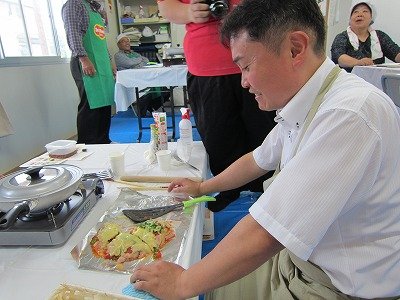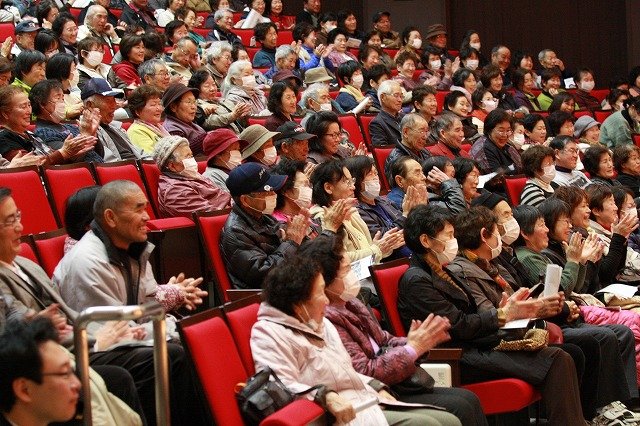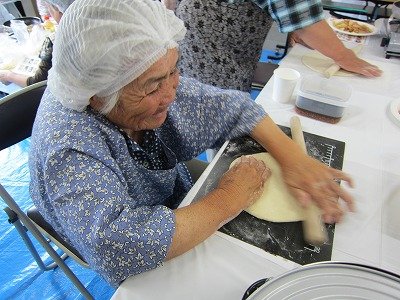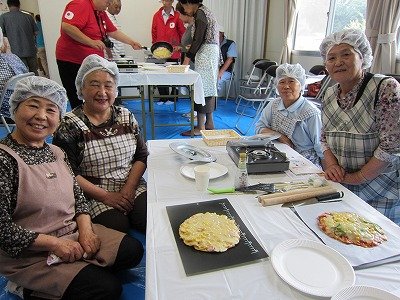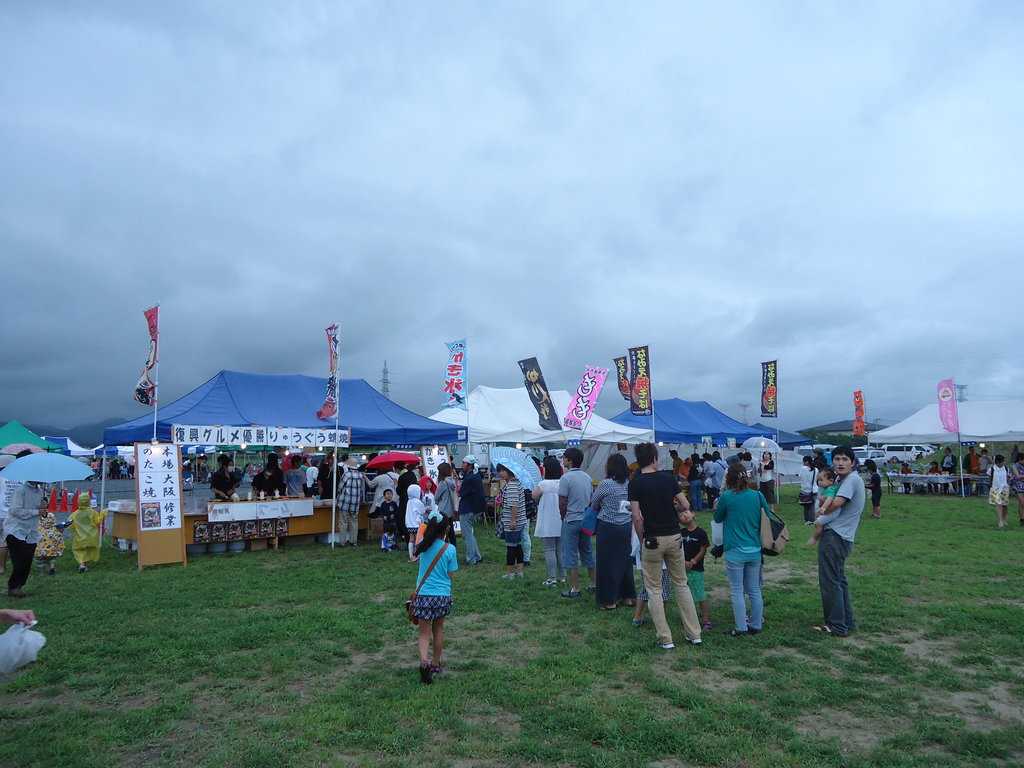By Tomomi Awamura | Programme Coordinator
The degree of isolation in temporary housing complexes has become deeper and deeper as the period of evacuation had been prolonged. In order to ease this isolation, AAR Japan has organized various events aiming at promoting interaction among residents of the temporary housing complexes. In June 2013, we started organizing cooking classes as one of those events.
By carrying out a number of community events, it has been observed that men were less active in participating in such events compared to women. It was not uncommon that there was no male participant in the events. Aiming at inviting more male residents, we organized an event named ‘Men’s Cooking Class’. The event was held on July 3rd, 2013 at the community space of Onodai Daini Temporary Housing Complex in Soma City, Fukushima Prefecture and 14 residents including 3 men participated.
The menu of the first cooking class was pizza, which was easy to cook even at home. The participants enjoyed making pizza dough and two kinds of sauces made from fresh vegetables. People actively chatted with one another while tasting delicious pizzas commenting ‘That’s very tasty’, ‘I haven’t been able to enjoy cooking since I moved here because the kitchen in the temporary housing is too small, but today I really enjoyed cooking with everyone’.
Onodai Daini Temporary Housing Complex accommodated many residents who had worked in fishery prior to the 3.11 disaster. One of the participants, Mr. Kusano (64), a fisherman from Ohama, Soma City told us, ‘I used to cook Sashimi and Tempura (Japanese fritter) on my boat with the freshly caught fish’. The sea of Soma City used to be a very rich fishing ground and more than 100 species had been harvested; however, at present only 15 species are fished on a trial basis due to the concern over radiation contamination of the sea triggered by the accident at the Fukushima Daiichi Nuclear Power Plant. There is still no prospect of resuming fishing as they used to.
While working in the disaster affected areas, we sometimes meet those who cannot help crying talking about their disaster-related experiences. We at times get lost for words listening to their heart-wrenching comments such as ‘I am the only one survived in my family’ and ’I will not be able to return home in my lifetime’. However, seeing the evacuees’ smiles at social interaction events always tells us that there is still much we can do.
Project reports on GlobalGiving are posted directly to globalgiving.org by Project Leaders as they are completed, generally every 3-4 months. To protect the integrity of these documents, GlobalGiving does not alter them; therefore you may find some language or formatting issues.
If you donate to this project or have donated to this project, you can receive an email when this project posts a report. You can also subscribe for reports without donating.
